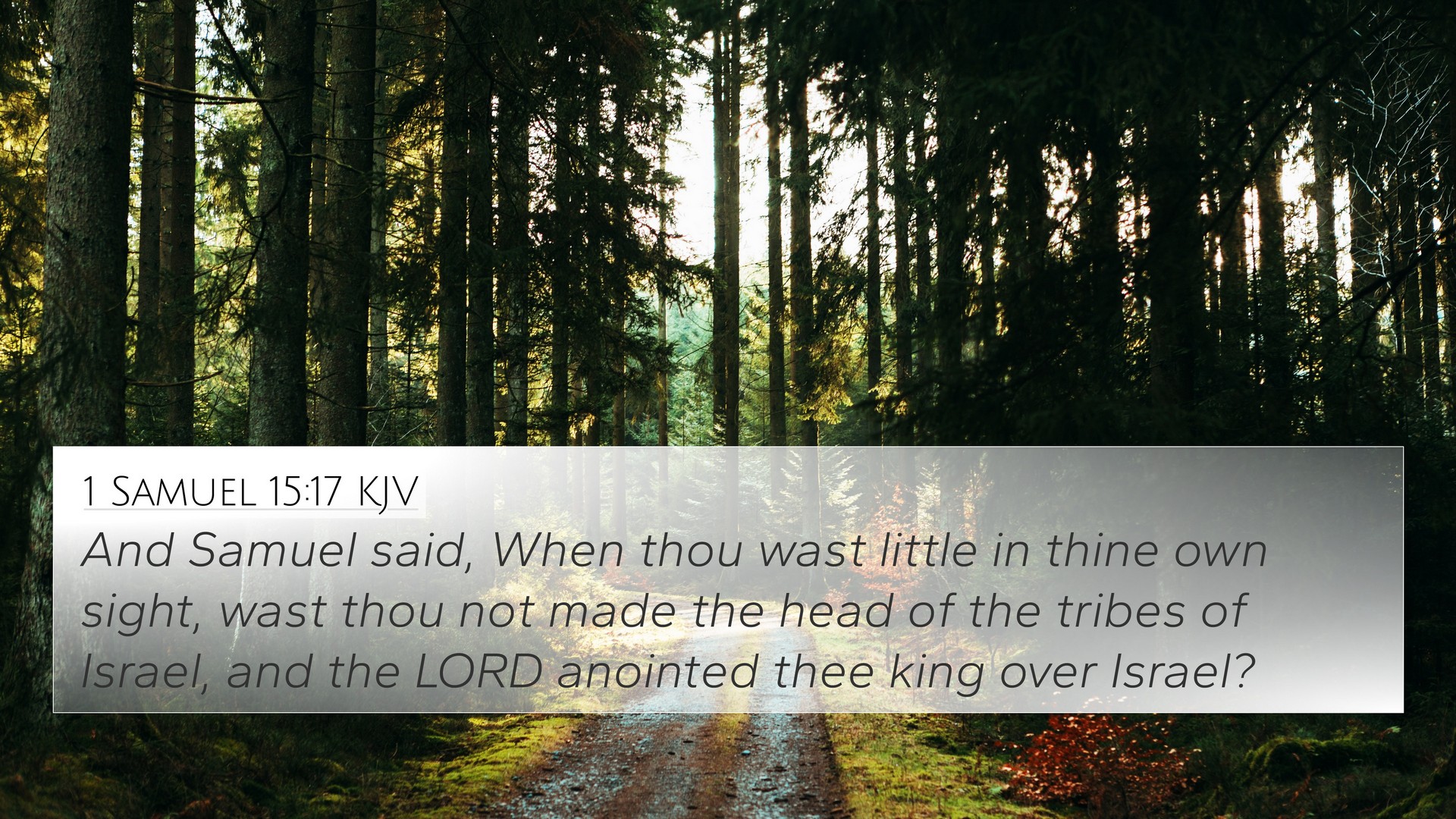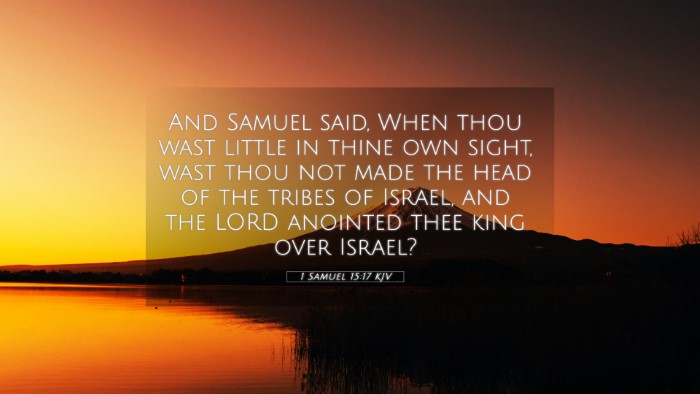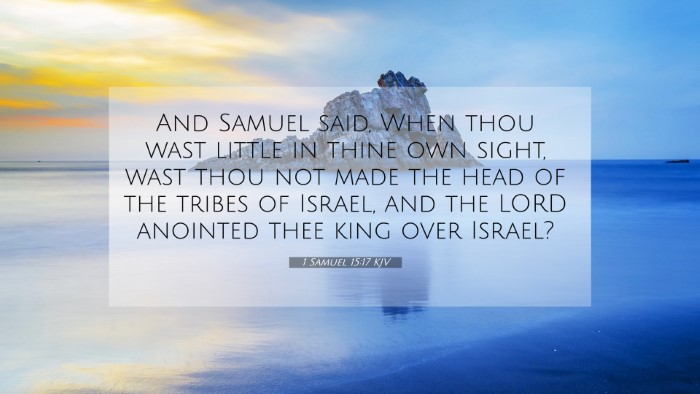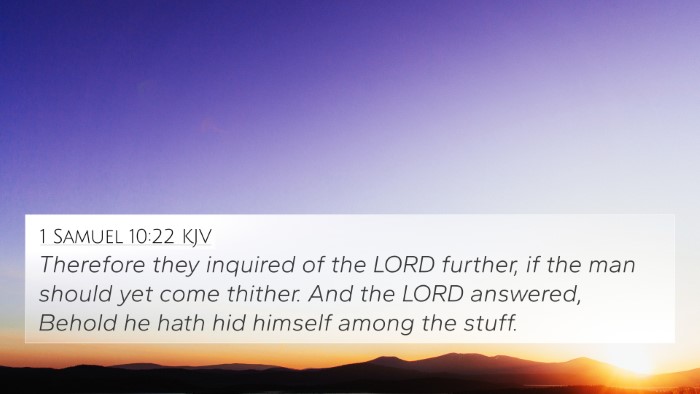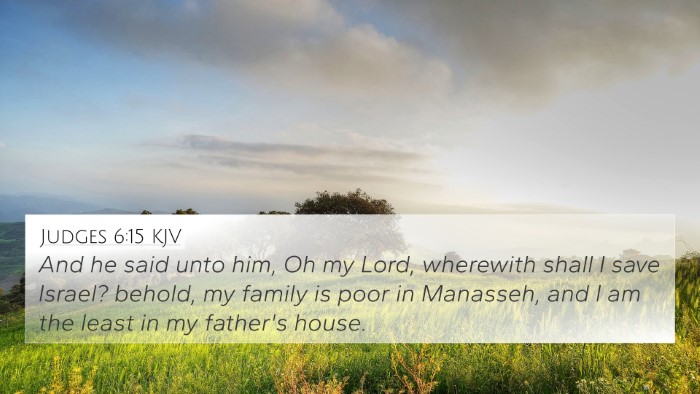1 Samuel 15:17 states, "And Samuel said, When thou wast little in thine own sight, wast thou not made the head of the tribes of Israel, and the Lord anointed thee king over Israel?" This verse offers profound insights into humility, divine calling, and the consequences of pride.
Samuel's words to Saul emphasizes that God's choice for leadership often falls on those who are humble and unassuming. The verse serves as a reminder that true greatness in the kingdom of God is characterized by humility and dependence on God.
Understanding the Meaning of 1 Samuel 15:17
-
Matthew Henry's Commentary: Henry expresses that God's selection of Saul was rooted in his humble beginnings. He points out Saul's initial reluctance and modest view of himself, which made him a suitable candidate for God's anointing.
-
Albert Barnes' Notes: Barnes highlights the idea that humility in a leader is vital for success. He explains that Saul's subsequent pride led to his downfall, contrasting his early humility with his later refusal to heed God’s commands.
-
Adam Clarke's Commentary: Clarke reinforces that humility is a trait valued by God in those He chooses for service. He notes that Saul's rise to power came with a responsibility to remain obedient and faithful to the divine calling.
Thematic Connections and Cross-References
This verse connects to several key Biblical themes and other verses that inform its interpretation and application. Below are notable cross-references, providing a deeper understanding of humility, authority, and God's calling:
- 1 Samuel 9:21: Saul expresses his unworthiness regarding becoming king.
- Proverbs 15:33: “The fear of the Lord is the instruction of wisdom; and before honor is humility.”
- James 4:10: “Humble yourselves in the sight of the Lord, and he shall lift you up.”
- Luke 14:11: “For whosoever exalteth himself shall be abased; and he that humbleth himself shall be exalted.”
- 1 Peter 5:6: “Humble yourselves therefore under the mighty hand of God, that he may exalt you in due time.”
- Matthew 23:12: “And whosoever shall exalt himself shall be abased; and he that shall humble himself shall be exalted.”
- Isaiah 66:2: “For all those things hath mine hand made, and all those things have been, saith the Lord: but to this man will I look, even to him that is poor and of a contrite spirit, and trembleth at my word.”
- Philippians 2:3-4: Encourages believers to act with humility and regard for others.
- Luke 18:14: The parable of the Pharisee and the tax collector teaches about humility before God.
- Exodus 18:21: Advises the selection of humble leaders who fear God.
Lessons and Applications
The exploration of 1 Samuel 15:17 and its commentaries illustrates multiple important lessons:
- Humility is key: Just as Saul began with a humble heart, so too must leaders and believers today recognize their limitations and rely on God.
- Obedience to God’s call: Saul’s rise was contingent upon his faithfulness to God, teaching us that we must follow divine direction to fulfill our purpose.
- Pride leads to downfall: Saul’s tragic story warns against letting success lead to arrogance and disobedience.
- God's grace in calling: Despite our unworthiness, God can choose anyone for His purposes if they remain humble.
Inter-biblical Dialogue
The interplay between this verse and others encourages a deeper examination of scriptural truths. Through cross-referencing Biblical texts, believers can draw parallels and contextual understandings that enrich their faith.
By exploring these themes, one can gain insight into the dynamics of divine appointment and the significance of humility throughout scripture.
Conclusion
In summary, 1 Samuel 15:17 serves not just as a historical record but as a timeless lesson on humility and the proper attitude towards God-given responsibilities. Engaging with public domain commentaries enhances our understanding and illustrates the rich tapestry of connection between various Bible verses that relate to each other, ultimately guiding us in our spiritual journey.
